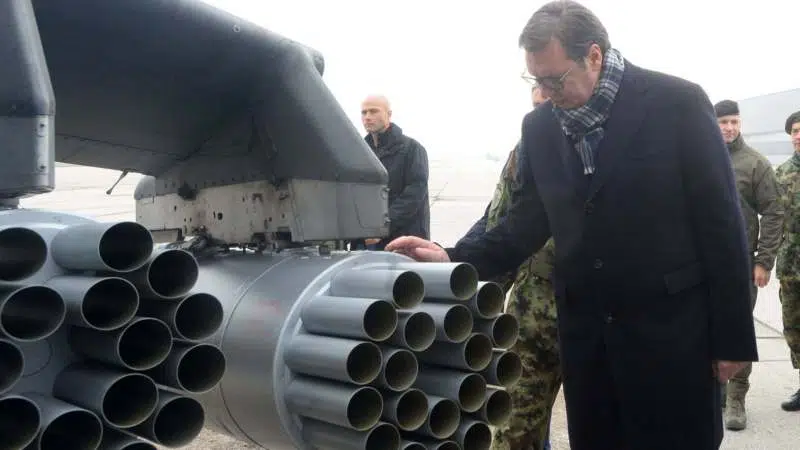Major German news outlets are reporting that Serbia’s delicate geopolitical balancing between Russia and the EU is under intense strain following serious accusations from Moscow. Russia’s Foreign Intelligence Service (SVR) claims Serbia is supplying weapons to Ukraine, allegedly violating its declared stance of neutrality in the ongoing conflict.
According to Focus, Russian intelligence has accused Serbia—long considered a Slavic ally—of covertly shipping arms to Ukraine through third countries such as Czechia, Poland, Bulgaria, and even several African nations. Despite official Serbian denials, SVR alleges that fake documentation was used to disguise the true destination of the weaponry.
The accusations suggest that seven major Serbian arms manufacturers have delivered hundreds of thousands of shells and millions of rounds of small arms ammunition destined for Ukrainian forces.
“These shipments cannot be justified as ‘humanitarian,’” SVR claims, accusing Serbia of a ‘stab in the back’ against Russia.
Frankfurter Rundschau: Arms Flow Not New, But Political Stakes Are Rising
The Frankfurter Rundschau highlights that rumors of indirect Serbian arms shipments to Ukraine have circulated since 2023, though President Aleksandar Vučić has consistently denied direct involvement. He has insisted Serbia remains neutral and does not authorize uncontrolled or direct arms transfers to Ukraine.
Still, Serbia’s historical ties to Russia, juxtaposed with its ambition to join the European Union, have left the country in a precarious diplomatic position. While refusing to implement EU sanctions on Russia, Belgrade has also drawn criticism for Vučić’s recent attendance at Moscow’s May 9 Victory Day celebrations.
Vučić defended the visit as an act of preserving “traditional friendships” while still pursuing Serbia’s EU integration goals.
Implications for Serbia’s Foreign Policy
German analysts suggest that these developments could complicate Serbia’s diplomatic efforts. The alleged arms transfers raise questions about its trustworthiness as a neutral actor and might worsen ties with Russia, while further testing EU patience over Belgrade’s dual allegiances.
As Frankfurter Rundschau concludes:
“This episode underscores how difficult it is for countries like Serbia to maintain neutrality in a geopolitically polarized environment. The long-term impact on Serbia-Russia relations remains to be seen.”







